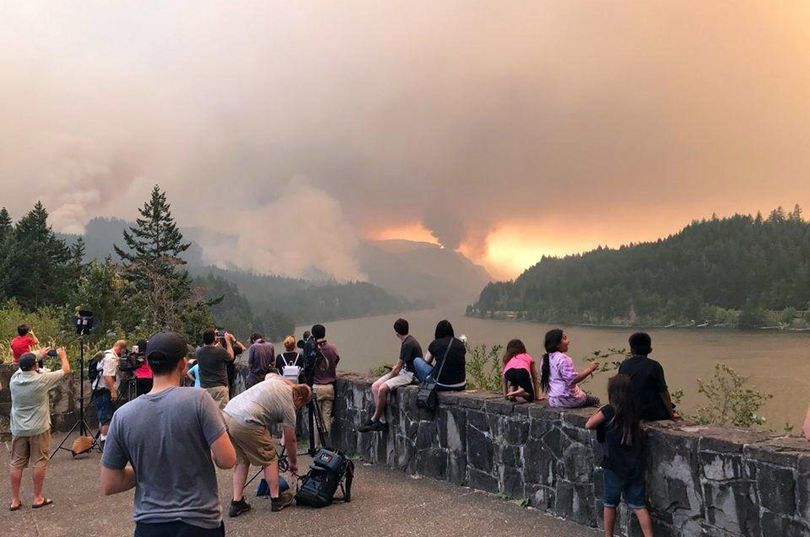Steelhead counts stopped at Bonneville due to wildfire smoke

FISHING -- In addition to hatchery closures, here's an unexpected consequence of wildfires and smoke impacting the region: Only “essential” workers are allowed to be on the job at Bonneville Dam, and that does not include the fish counters.
Consequently, as Columbia River fish managers and anglers are desperately trying to monitor critically low runs of B-run steelhead, the fish counts are days behind. Bonneville is the first dam the fish negotiate as they migrate from the ocean up the Columbia and Snake rivers.
Hatcheries have been impacted too. Here's a report from the Oregonian:
The raging Eagle Creek fire forced Oregon fish officials to release more than 600,000 hatchery salmon on Tuesday, some were dumped six months earlier than expected.
Oregon's Department of Fish and Wildlife had to evacuate the 26 employees at the three hatchery facilities in Cascade Locks as a result of the Columbia River Gorge blaze.
The Bonneville, Oxbow and Cascade hatcheries are home to some six million fish (mainly Coho and Chinook salmon). Bonneville's Hatchery is also the home of the Sturgeon Viewing Interpretive Center.
The state was forced to either release hundreds of thousands of five to six-inch hatchery fish now or risk losing them altogether, according to spokesman Ken Loffink.
Tanner Creek, one of the water sources feeding a hatchery facility, was "literally engulfed in flames," Loffink said, and the intake pipes were clogged with ash and debris.
"Without that water, those fish are going to die," he said.
